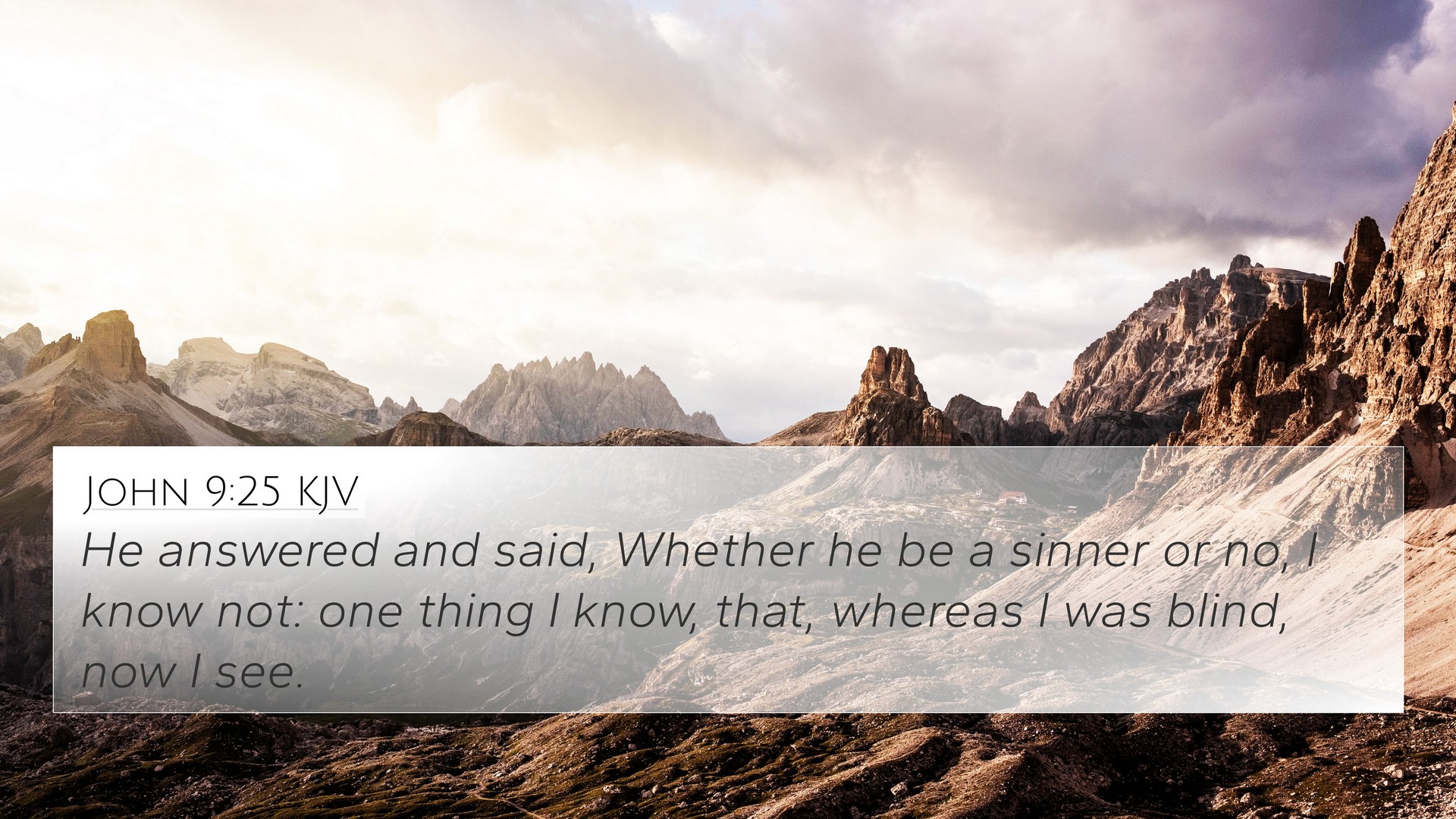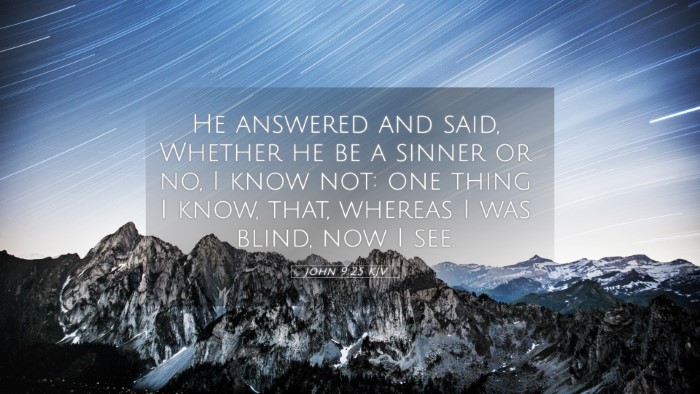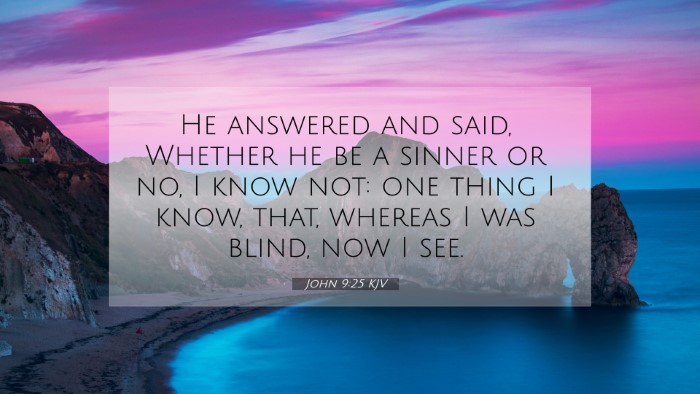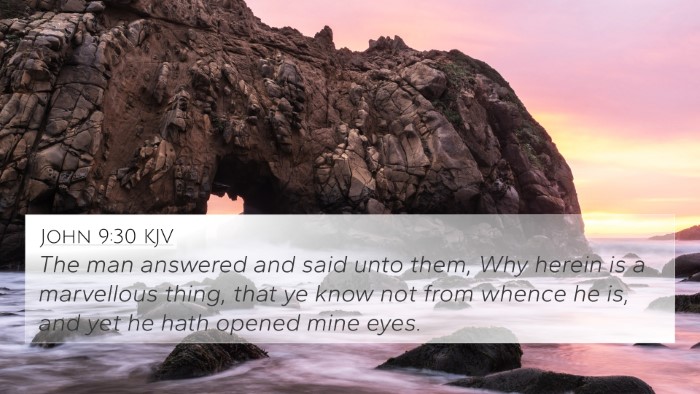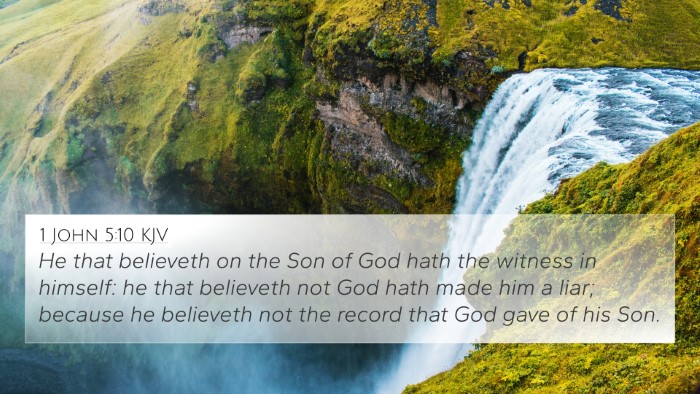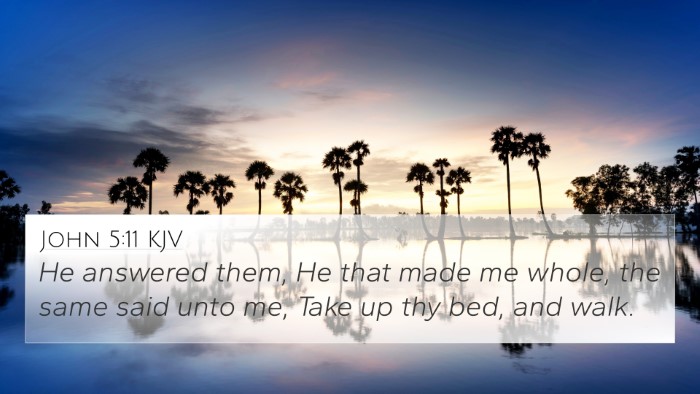Understanding John 9:25
John 9:25 states, "He answered and said, Whether he be a sinner or no, I know not: one thing I know, that, whereas I was blind, now I see."
Summary of John 9:25
This verse occurs in the context of the healing of a man born blind. The man is brought before the Pharisees who are skeptical of Jesus' authority and actions. In this verse, the healed man affirms a simple yet profound truth: though he does not possess extensive theological knowledge or understand the complexities of judgment regarding Jesus' character, he can testify to his personal experience of transformation.
Commentary Insights
Combining insights from notable public domain commentaries, we can grasp several layers of meaning within this verse:
-
Matthew Henry:
Henry highlights the healed man's emphasis on experience over speculation. The man's assertion, "I was blind, now I see," emphasizes the transformative power of Jesus and serves as a testament to the miracles that Jesus performed, focusing on personal witness rather than theological debate.
-
Albert Barnes:
Barnes remarks that the man refrains from challenging the theological implications of sinfulness attributed to Jesus, instead pointing to the undeniable fact of his healing. This statement encourages believers to share their experiences and personal encounters with God, recognizing that these experiences have profound power in discussions about faith.
-
Adam Clarke:
Clarke suggests that this verse exemplifies spiritual insight—sometimes one’s personal transformation is more impactful than theological arguments. The blind man, emerging from blindness, symbolically represents the enlightenment that faith in Christ brings to believers.
Cross-References and Thematic Connections
In interpreting John 9:25, several other scripture references resonate deeply, enhancing our understanding of themes of healing, faith, and personal testimony:
- John 8:12: Jesus declares Himself as the Light of the world, linking to the man’s newfound vision.
- 2 Corinthians 5:17: "Therefore, if anyone is in Christ, he is a new creation," emphasizing transformation.
- Psalms 146:8: "The Lord opens the eyes of the blind," directly correlating to the miracle of the healing.
- Matthew 11:5: "The blind receive their sight," underscoring Jesus' miraculous works.
- Luke 18:42: "Receive your sight; your faith has healed you," connecting faith to divine healing.
- Mark 8:22-25: A narrative of another blind man's healing, illustrating similar themes of sight and faith.
- Isaiah 35:5: "Then the eyes of the blind will be opened," a prophetic vision of restoration fulfilled in Christ.
- John 3:11-12: Jesus speaks to the spiritual blindness of men and the necessity of being born again.
- Acts 26:18: Paul speaks of opening the eyes of the spiritually blind, promoting the theme of enlightenment.
- Romans 10:17: "So faith comes from hearing, and hearing through the word of Christ," highlighting the importance of testimonies in building faith.
The Importance of Personal Testimonies in Faith
Personal testimonies, as illustrated in John 9:25, play a vital role in faith sharing. The simple statement of "I was blind, now I see" serves as a powerful reminder that evidence of God’s presence and action in our lives can often bridge the gap where theological arguments may fail. Observing parallels in scripture reinforces the power of testimony throughout the Bible and encourages believers to actively share their experiences of God's transformative work.
Conclusion
John 9:25 is an assertion of personal experience and transformation that highlights a unique perspective on faith. By linking this verse to broader biblical narratives, we can encourage deeper theological reflections and personal explorations of faith through the lens of scriptural cross-referencing. Engaging with this verse through the insights of various commentaries broadens understanding and appreciation of the powerful message it contains.
